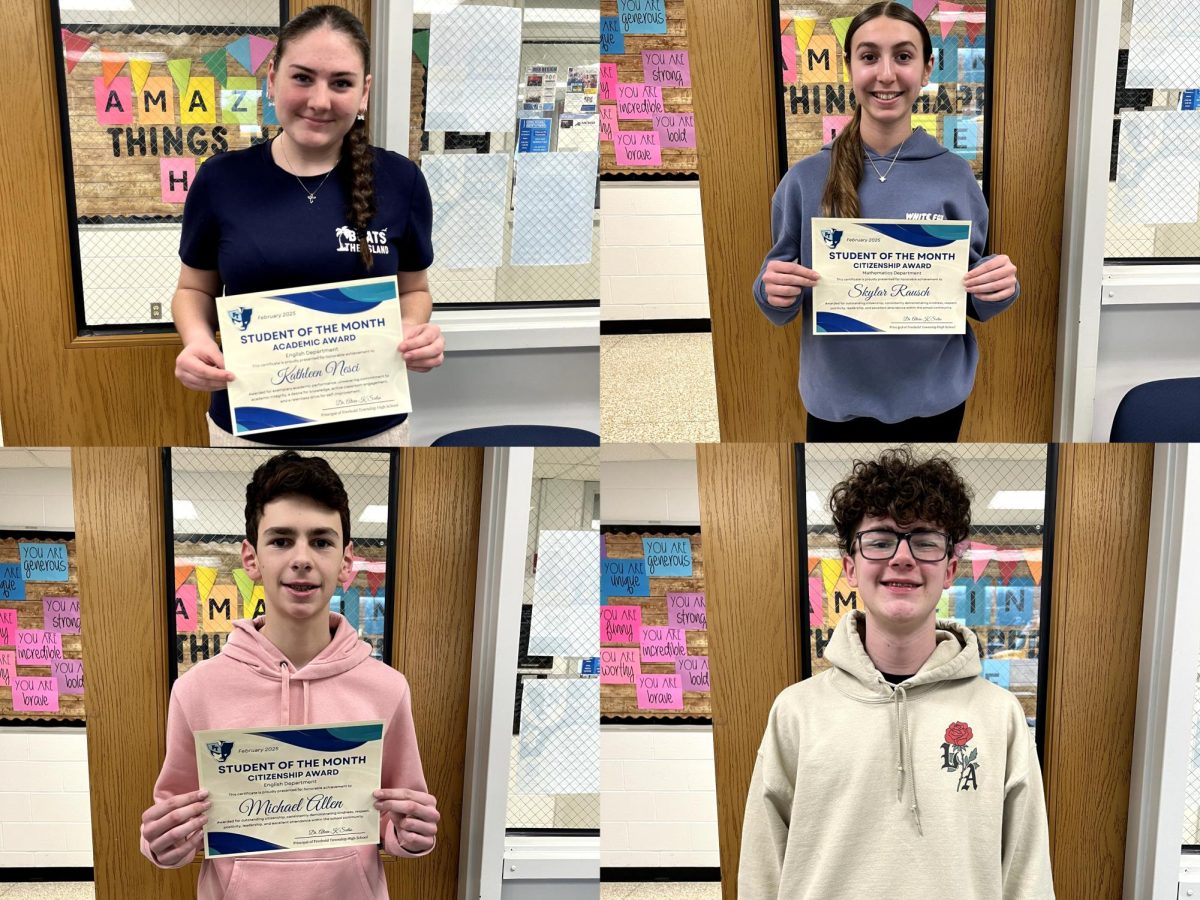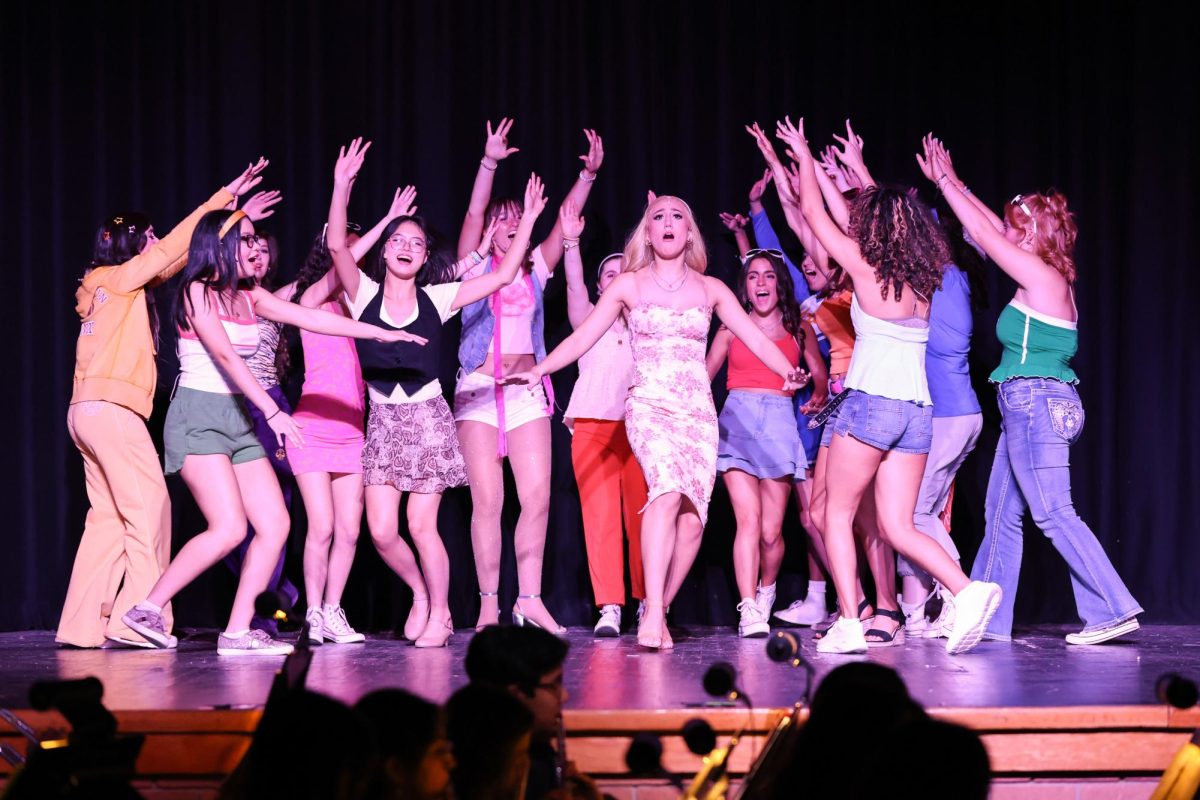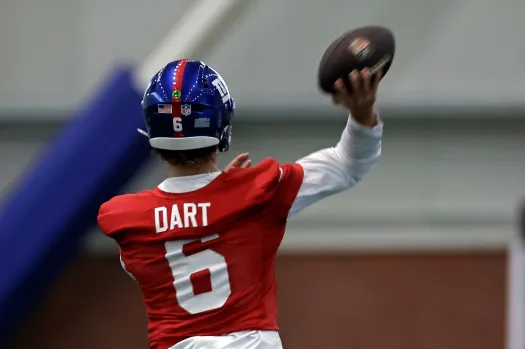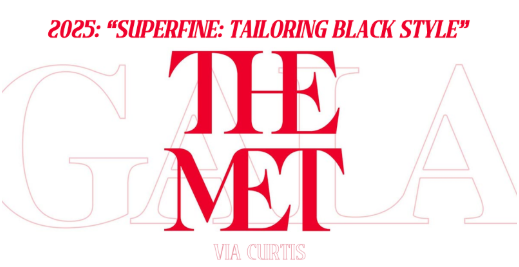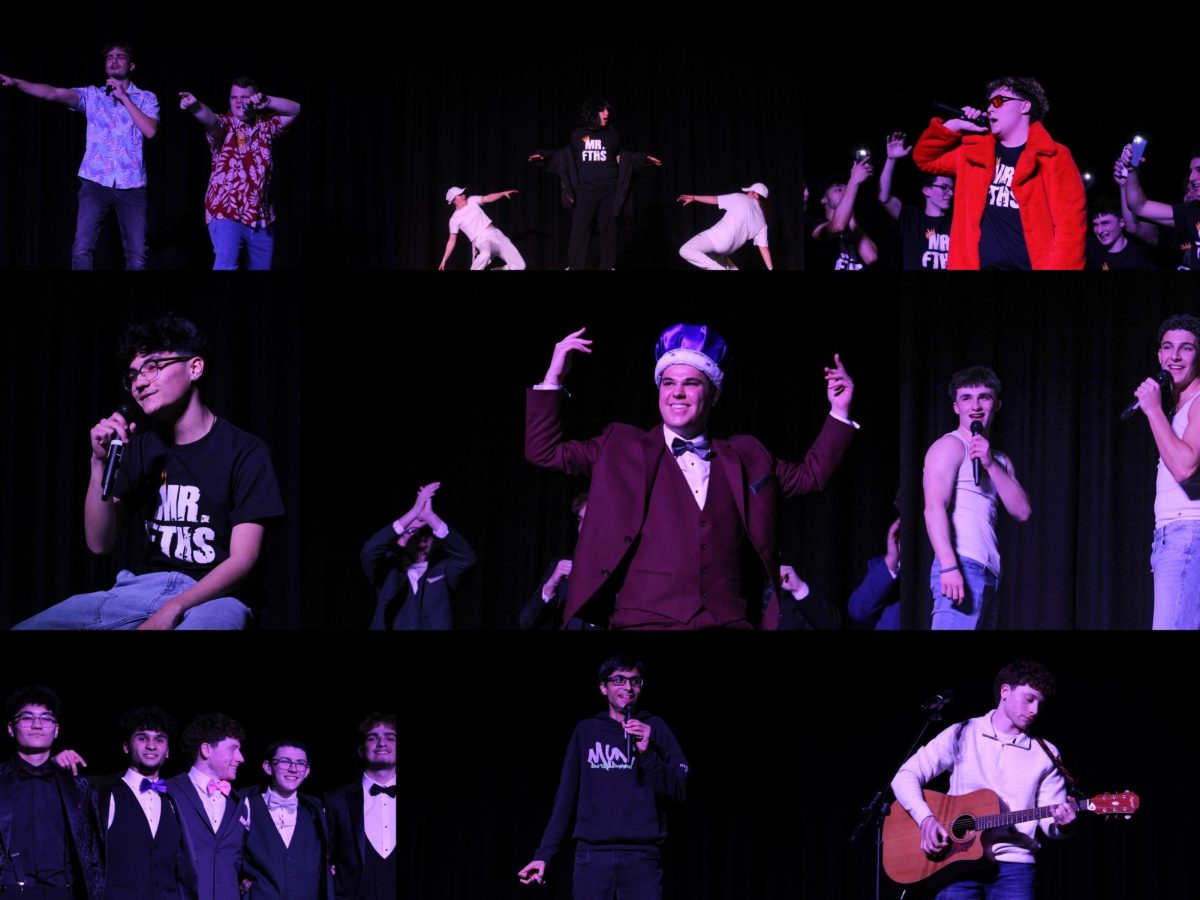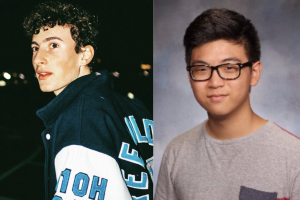Joe Park
November 25, 2020
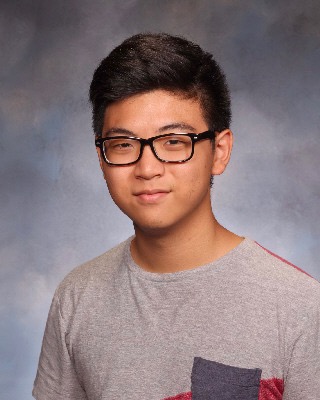
Joe Park is profoundly conscious of the societal problems that are derived from a lack of education. Therefore, he aspires to study education as well as history in college in order to further advocate for an equal access to a quality education and the arts. Joe, who has developed his understanding of politics and leadership through his devotion to JSA as well as other activities, values creating positive impacts on those around him.
Read the full interview below:
Olivia Naum: If you could live anywhere, where would it be?
Joe Park: Hawaii. I like the winter but Hawaii just seems so nice and even though it’s expensive, you’re paying for all the good stuff like the weather, and the furthest you’ll ever be from a beach is like thirty minutes.
ON:What was the most recent tv show that you binge watched?
JP: I’m not really a tv person but the last thing I binge watched was Avatar from the summer.
ON:What is your favorite breakfast food?
JP: Eggs.
ON:What are some other things you think we should know about you?
JP: I’m a really big advocate for the arts and I’m a really big advocate for education and making things accessible for everyone. The arts, a lot of the time, is reserved for people who can afford it. In reality, the arts should be afforded to everyone. Same thing for education, a quality education is only available in wealthier areas, such as ours. But students in lower income urban areas are not afforded a good education even though the government promised that to them.
ON: Besides JSA, what other activities are you a part of?
JP: Mainly I do drama and I am also a part of Global Studies Student Leadership and the Superintendent’s Cabinet.
ON: How have these activities shaped your experience in high school?
JP: I think being a part of drama was just a good way to have fun. You know, it was just really fun. Once again, it really deepened my appreciation for the arts. And you just make a lot of friends, which is fun. I guess being a part of Student Government and the Global Studies Leadership and the Superintendent’s Cabinet, it just feels good to have your voice heard. You know, to have your ideas be out there.
ON: Outside of our school chapter, you have had many opportunities to experience JSA on a larger scale. What were some of the roles that you’ve held in JSA?
JP: Not to brag but, it’s quite an extensive list. I was a CIA agent sophomore year. So basically, let me preface this, JSA has student leadership on the regional level. So sophomore year, I was a CIA agent, junior year I was Director of Expansion, they’re kind of similar but kind of different. So I helped chapters basically, I contacted a lot of chapter presidents, helped them maintain their meetings, and I helped kids start chapters too. Then, I ran for governor, but I lost. But, at the end of the day, I didn’t care if I won or lost because it’s just high school. Not that I don’t care, it was just a good experience. And now I’m the MASChief of Staff, I help plan, I don’t really have a specific role but my role is just a very generic role, where I help plan the events.
ON: Describe what these experiences were like for you. How do you think you grew as a person and as a leader?
JP: I think, in general, it helped me realize, even though the things that we do aren’t exactly politics, we plan conventions, and we fundraise, we do like club things but we do have student elected officials and you realize behind every elected official is a giant team. So politics isn’t just the face, it’s everyone behind the face as well. Junior year, I led a whole department so that really challenged my leadership skills. And I realized that not everyone is receptive in the same way.
ON: We kind of mentioned this before but I wanted to talk about how you ran for governor last year, and I thought your campaign was really great, by the way. So, what do you think you learned about yourself from that experience?
JP: I think I learned that even though- this is going to sound really narcissistic- but even though you may think you have the best ideas in the moment, someone else’s ideas might be better in the long run. I could have a critique on the current student leadership of the MAS because I don’t approve of some of the stuff that they do. You know, at the end of the day, I think the main lesson is that democracy works. Who the people vote for works and I think that’s a lesson that can really be learned during this time.
ON: What was one of the most rewarding experiences you’ve had in JSA, either in our chapter or on the Mid-Atlantic State level?
JP: Honestly, as much as I love politics and as much as I love debating people, at the end of the day, I think I learned that it’s a high school club and it’s a high school organization. We talk about a lot of serious stuff but I think what was most memorable was just hanging out with your friends during the conventions and talking to your friends about political issues during meetings, having thought-talks, just talking to your friends and getting to know them better. At the end of the day, you just learn how to be friends with people through debate and it’s just a fun time. Just friendship, basically.
ON: It’s really important that we’re building these relationships in high school. So, what does being an effective leader mean to you?
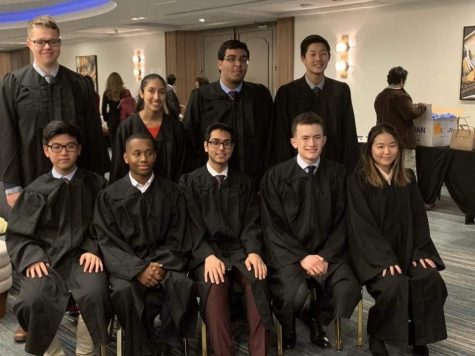
JP: Actually, I’m writing a college essay about this. So, I saw the prompt, and I was like, I think I write about this time because it meant a lot to me. After I lost my election, one of the girls in a different election, a regional election, who was one of my Expansion Agents, she texted me separately and said, I know this is really hard for you but I just wanted to let you know that I really looked up to you this year, like you really helped me out a lot this year, you’ve been an example for me for what it’s like to be a leader. So I think effective leadership is not just about numbers but on the personal level as well. Just getting that text helped me feel better because there were times last year when I was just like, my leadership is absolutely awful, like I suck, I’m letting JSA down. But you know, numbers can say one thing but your effect on a person can say another.
ON:Yeah, even when you don’t get the results you wanted but seeing people reach out and respond to the way you did something, I think that’s really amazing. So, what was the most surprising aspect about being a leader of a club at Freehold Township?
JP: What was most surprising was- I know you want me to answer in one way but I’m going to take it another way.
ON: Go ahead. Take it wherever you want.
JP: I think it was the CoronaVirus, the pandemic happening, it’s hard to keep your motivation up, you know? It’s just like, when everything’s online and we’re not even in school and not even allowed to have in-person clubs or anything. It’s another challenge to your leadership. Despite a pandemic, how will you keep this going? It says a lot about our current administration. Their response was to do nothing because they had no motivation to be proactive.
ON: As a leader, how did you keep the motivation for yourself and for your whole club? Because I feel like you and Luke did a really great job of keeping things going.
JP: Honestly, we were just like, let’s have meetings all the time. I’m going to be really honest, it gets really hard to have meetings virtually, to have the motivation to plan these meetings, because it feels like another zoom, another call of the day. Even though, in the moment, it’s really difficult to have the motivation to do something, but despite the pandemic we know that we want JSA to exist at Township after we graduate. That’s why we’re continuing this. And I want people in future generations of Township to have the opportunity to experience JSA in the same way we did.
ON: That’s really great that you’re trying to keep it going because we see a lot of clubs, as soon as the leaders leave, the club kind of ends. How do you set an example for the younger grades in order to keep the club going?
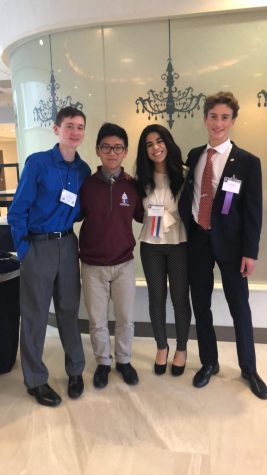
JP: I think this is a challenge that the leadership had last year, during meeting, just disagreeing on stuff. So, I think that I learned that a good example is to literally, in the same way you want to treat others in the way you want to be treated, act in the same way you want to see someone act. You can’t ignore people, yeah like, mind your own business, but act in a way you would want to see yourself act. Be mature. That itself can send a message.
ON: What do you see yourself doing after high school?
JP: I mean, going to college, I guess. I’m applying to college. In college, I want to major in history and education. I’m very interested in education because education is like the one thing that, if we improve it, we can also improve other aspects of society. If we improve education, we have seen that crime rates lower, people are more likely to have successful lives, you know, teen pregnancies drop if we increase education. The achievement for women increases, if we improve our education. A good way of doing that is a history education. I’m just someone who likes history, like I understand our history and I want to be able to teach, where did we go wrong and where do we see ourselves going wrong and what can we do to not let that happen.
ON: Do you think you become interested in education through your own school experiences or outside of school activities?
JP: Both, I think. Being interested in politics has helped me with that because you realize that a lot of these political issues that we are having today stem from a place of miseducation, and not being educated on a lot of things. And also, going through Global Studies, you kind of realize how lucky you are that you have this opportunity. In the program, specifically, we realize that not everyone in the world has this opportunity, there are so many places in the world where people can barely read or they reach a fifth grade education and then are drafted into this terrorist militant group. Or women are told they can’t have an education or they won’t be desirable for men. So, I think it’s a combination of being interested in politics and learning through JSA and also learning through my own educational experiences how lucky I am.
ON: It’s interesting how you can see the culmination of Global Studies, JSA, from these different high school experiences, it’s just all coming together into one idea.
JP: Yeah, if everyone has access to a quality education it would improve literally every or almost every aspect of society.
ON: Yeah, that’s so true. What do you think is going to be the most important thing for everyone to get access to education?
JP: I mean, as much as I am an advocate for everyone in the world having access to education, I think we need to start in our own country first. Everyone has to go to school, we have a ninety-nine point-something literacy rate, everyone can read. But we are still at the same place we were at our country’s founding. Education is only available for wealthy white people. Education for today’s time is only available for wealthy white people. And I say wealthy white people because wealthy people are more likely to be white. The education that poor people got in the 1700s, didn’t get them very far and the education that poor people are getting today is not getting them very far either. Obviously, education is funded through local taxes but I think we need to start with closing that gap in the budget, increasing federal funding to lower income areas, paying teachers in lower income areas the same as teachers in a wealthier area. The more teachers are paid, the more they are going to want to do their job. We just have to start with closing that gap and going from there.
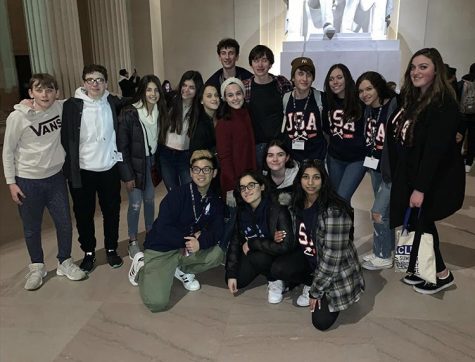
ON: Totally switching gears here, what was one of your favorite high school memories?
JP: My most memorable high school memory is, I guess I would say, going to the homecoming football games. You know, just making friends and hanging out with them. Even something as little as that, just hanging out with friends.








